
Victor-Marie Hugo was a French poet, novelist, essayist, playwright, and dramatist of the Romantic movement. During a literary career that spanned more than sixty years, he wrote abundantly in an exceptional variety of genres: lyrics, satires, epics, philosophical poems, epigrams, novels, history, critical essays, political speeches, funeral orations, diaries, and letters public and private, as well as dramas in verse and prose.
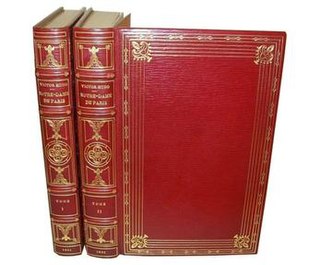
The Hunchback of Notre-Dame is a French Gothic novel by Victor Hugo, published in 1831.
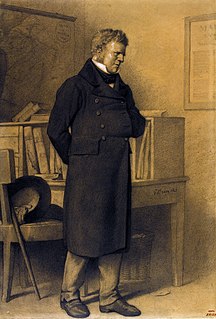
Les Misérables is a French historical novel by Victor Hugo, first published in 1862, that is considered one of the greatest novels of the 19th century.

Victor Amadeus II was Duke of Savoy from 1675 to 1730. He also held the titles of Prince of Piedmont, Duke of Montferrat, Marquis of Saluzzo and Count of Aosta, Moriana and Nice.

Victor Emmanuel II was King of Sardinia from 1849 until 17 March 1861, when he assumed the title of King of Italy and became the first king of an independent, united Italy since the 6th century, a title he held until his death in 1878. Borrowing from the old Latin title Pater Patriae of the Roman emperors, the Italians gave him the epithet of Father of the Fatherland.

Victor Emmanuel III was the King of Italy from 29 July 1900 until his abdication on 9 May 1946. He also reigned as Emperor of Ethiopia (1936–1941) and King of the Albanians (1939–1943). During his reign of nearly 46 years, which began after the assassination of his father Umberto I, the Kingdom of Italy became involved in two world wars. His reign also encompassed the birth, rise, and fall of Italian Fascism and its regime.

Prince Albert Victor, Duke of Clarence and Avondale was the eldest child of the Prince and Princess of Wales and grandson of the reigning British monarch, Queen Victoria. From the time of his birth, he was second in the line of succession to the British throne, but did not become king as he died before both his grandmother and his father.

Achille Léonce Victor Charles, 3rd Duke of Broglie, briefly Victor de Broglie, was a French peer, statesman, and diplomat. He was the third duke of Broglie and served as president of the Council during the July Monarchy, from August 1830 to November 1830 and from March 1835 to February 1836. Victor de Broglie was close to the liberal Doctrinaires who opposed the ultra-royalists and were absorbed, under Louis-Philippe's rule, by the Orléanists.
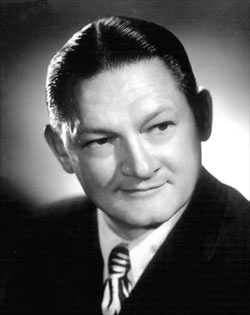
Albert Victor Young was an American composer, arranger, violinist and conductor.
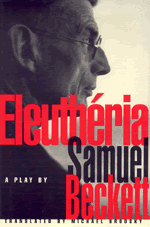
Eleutheria is a play by Samuel Beckett, written in French in 1947. It was his first completed dramatic endeavor. Roger Blin considered staging it in the early 1950s, but opted for Waiting for Godot, because its smaller cast size made it easier to stage. At this point, Beckett suppressed the manuscript. Beckett later recycled the name "Krap" for his play Krapp's Last Tape.

Claude Victor-Perrin, 1st Duke of Belluno was a French soldier and military commander who served during both the French Revolutionary Wars and the Napoleonic Wars. He was made a Marshal of the Empire in 1807 by Emperor Napoleon I.

Victor Frankenstein is the protagonist in Mary Shelley's 1818 novel, Frankenstein; or, The Modern Prometheus. He is an Italian-Swiss scientist who, after studying chemical processes and the decay of living things, gains an insight into the creation of life and gives life to his own creature. Victor later regrets meddling with nature through his creation, as he inadvertently endangers his own life and the lives of his family and friends when the creature seeks revenge against him. He is first introduced in the novel when he is seeking to catch the monster near the North Pole and is saved from near death by Robert Walton and his crew.

Gavroche is a fictional character in the 1862 novel Les Misérables by Victor Hugo. He is a boy who lives on the streets of Paris. His name has become a synonym for an urchin or street child. Gavroche plays a short yet significant role in the many adaptations of Les Misérables, sharing the populist ideology of the Friends of the ABC and joining the revolutionaries in the June 1832 rebellion. He figures in the 3rd, 4th and 5th parts of the novel.

Sharpe's Fury is the eleventh historical novel in the Richard Sharpe series by Bernard Cornwell, published in 2006. The story is set in 1811 during Wellington's campaign in the Iberian peninsula.

The Wild Child is a 1970 French film by director François Truffaut. Featuring Jean-Pierre Cargol, François Truffaut, Françoise Seigner and Jean Dasté, it tells the story of a child who spends the first eleven or twelve years of his life with little or no human contact. It is based on the true events regarding the child Victor of Aveyron, reported by Dr. Jean Marc Gaspard Itard. The film sold nearly 1.5 million tickets in France.
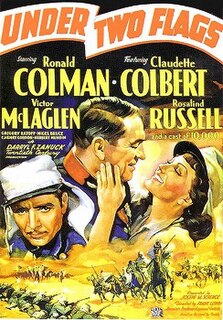
Under Two Flags is a 1936 American adventure romance film directed by Frank Lloyd and starring Ronald Colman, Claudette Colbert, Victor McLaglen, and Rosalind Russell. The picture was based on the 1867 novel of the same name by the writer Ouida. The film was widely popular with audiences of its time. The supporting cast features Nigel Bruce, John Carradine, and Fritz Leiber.

Claude Jacques Lecourbe, born in Besançon, was a French general during the French Revolutionary and Napoleonic wars.

First a Girl is a 1935 British comedy film directed by Victor Saville and starring Jessie Matthews. First a Girl was adapted from the 1933 German film Viktor und Viktoria written and directed by Reinhold Schünzel. It was remade as the 1982 American musical comedy Victor Victoria starring Julie Andrews.

Frankenstein; or, The Modern Prometheus is an 1818 novel written by English author Mary Shelley. Frankenstein tells the story of Victor Frankenstein, a young scientist who creates a sapient creature in an unorthodox scientific experiment. Shelley started writing the story when she was 18, and the first edition was published anonymously in London on 1 January 1818, when she was 20. Her name first appeared in the second edition, which was published in Paris in 1821.

Frankenstein is a stage adaptation by Nick Dear of Mary Shelley's 1818 novel Frankenstein; or, The Modern Prometheus.




















